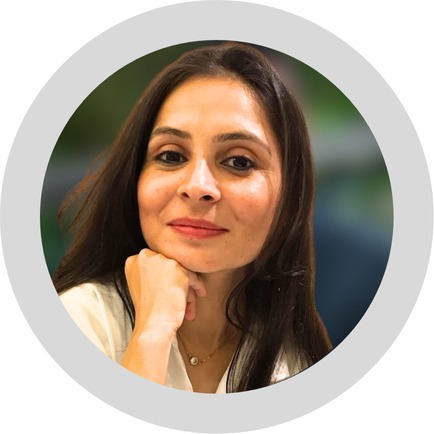The modern woman is redefining what it means to live a fulfilling life. Many women are choosing to embrace singlehood and a child-free lifestyle. The desire to remain single and childless isn’t rooted in rejection of tradition but in empowerment and choice. With evolving priorities like career advancement, personal freedom, and self-discovery, many women find happiness outside the conventional expectations of marriage and motherhood. This cultural shift brings a spotlight to a new era of individuality and autonomy. A recent survey done by Morgan Stanley highlights that 45% of women in the prime working age range of 25–44 will be childless and single by 2030. This demographic shift shows broader societal changes and challenges the traditional norms around marriage and motherhood. But what does this mean for women, and what factors contribute to this trend?
For Manasi Y Mastakar, 37, a media professional in Mumbai, it is about celebrating the advancements she has made in her career and not taking any additional burden of marriage. "If this question was asked a decade ago I would have said because I am not finding the right man. Not that the case is different now, but, I am happy with the way things are because I have finally reached a point in my career I always dreamt of. Plus, there’s no emotional bandwidth – between work and home, I am left with no me-time," says Manasi.
Similarly, for Smruti Patwa, a digital marketing professional, being single is her choice to enjoy the freedom she has. "I feel good about myself since I am responsible for my happiness. I would not want to be dependent on anyone else. For anything, even for my well-being and happiness
And who’d like it when someone enters your personal space? That’s what happens when people get married," opined the 29-year-old.
Changing priorities and societal shifts
While some women do not want a partnership at all, others are considerate of the idea of marriage but want to stay away from the responsibility of a child. Nirtika Pandita, 36, observes that men are not ready for commitment and are the ones who need a child as soon as they get married. "Men don't want to commit. Till the time things are casual, everything is fine, but when it comes to difficult discussions about marriage and family, they are not too interested. I want to get married but haven't met a man who is ready for long-term commitment," says Nirtika, a media professional.
She also points out that many men who are ready for commitment are also keen on children. "I don't want to have additional responsibility along with my career. Good companionship is enough," says Nirtika discarding the biological factors that may come into play with age while conceiving a child.
Shweta Singh, 40, decided early on that motherhood wasn’t for her. “I’ve always felt fulfilled by my work as an artist and my close friendships,” she says. “For me, having children was never tied to my sense of purpose or identity.” Though she occasionally faces questions about her choices, Shweta remains firm. “I have created a life that feels rich and full, and that’s what matters most.”
Naturally, the idea of marriage changes as we evolve - companionship takes priority over anything else. However, women who are successful in their respective careers are not willing to rock their career boat they have stabilised with years of hard work. "Everyone wants to be respected, heard and valued, and some of us get that at work. It's important to have a supportive partner for ambitious women or no partner at all. And finding a supportive partner is rare," she observes.
Manasi also seconds the thought stating, "I can’t deal with men who are incapable of handling my aspirations and my odd working hours. However, if the opportunity strikes, I’ll give the relationship a shot, but without sacrificing my career."
Be a "good wife, mother, and daughter-in-law"
Additionally, as Chetan Bhagat writes in his book Two States, 'You don't marry a man, you marry his family" which resonates with many women. "It is true for women. They are expected to take care of the entire family the moment they enter the household. That's expecting too much from one person. 'Ghar ko sambhal sake and jodke rakhe' (Be able to manage and keep the family together). The house has so many traumas and issues and then they expect the young woman to come and fix that. That's too much of an expectation. My friends go through that and I don't think I am ready for it," says K Fernandes.
There's no denying that marriage in India comes with additional pressure on women to be a good wife and then a good mother. While this is subjective, the scale doesn't differentiate when it comes to pointing out women's inabilities. "It comes with a weird societal pressure that oh I need to be a good wife now, or a good mother, or a good daughter-in-law. We lose ourselves and sacrifice way too much for others that it kills our dreams and happiness and eventually we forget what we are and lose our identity," Smruti avers.
Embracing choices
Dr. Manju Sharma, a sociologist specialising in gender studies, attributes this trend to a combination of greater economic independence, shifting cultural expectations, and changing priorities. “Women today have more options than ever before. Many prioritise education, careers, and personal growth over traditional timelines for marriage and children,” she explains. “This isn’t a rejection of family but rather an embrace of choice.”
Economic stability also plays a significant role here. According to Morgan Stanley’s findings, women’s increasing participation in higher education and high-paying careers means they have the financial freedom to delay or forgo marriage and children. This newfound autonomy allows them to focus on their personal and professional aspirations without societal pressures dictating their timelines.
Evolving dynamics
Relationship expert Sabrina Pinto highlights another aspect of this trend – the evolving dynamics of modern relationships. “In the age of dating apps and social media, finding a meaningful connection has become both easier and harder,” she says. “While there are more options, the paradox of choice can lead to decision fatigue or unrealistic expectations. For many, staying single feels more fulfilling than settling.”
Additionally, some women are redefining relationships altogether. Polyamory (engaging in multiple relationships), casual dating, and non-traditional partnerships are gaining acceptance. These modern ideas of relationships show the diverse ways women find connection and intimacy.
Bearing the pressure
While this demographic shift is empowering for many women, it isn’t without its challenges. Societal expectations, familial pressures, and even loneliness can weigh heavily. "It does get lonely at times, but I have found ways to manage it. I hit the gym daily, prioritise self-care, and sometimes go shopping or hang out with friends. While my family questions my choices, I am independent and capable of taking care of myself. At least I don’t have to suppress my desires, nor do I need to wait for a husband, children, or anyone else to approve of what I do. I can make my own decisions," says Parul Sharma. She also reflects on how she views loneliness in her later years, adding, "I tell my family members that I will stay engaged in community service, where I will make a difference. That’s enough for me — living a meaningful life by contributing to society."
Surely, choosing to walk a path alone does not mean loneliness; it means standing strong in a world that often values conformity over individuality. Sometimes, the pressure to fit in is louder than the quiet peace of staying true to yourself. However, experts suggest that community building and open conversations can help alleviate these feelings.
“We need to normalise varied life paths and celebrate the diversity of women’s experiences,” says Dr. Sharma. She encourages women to seek support networks and resources that align with their values and goals.
Redefining societal norms
The prediction that nearly half of working-age women will be single and childless by 2030 is not just a statistic; it’s a reflection of the evolving roles women are playing in society. It shows the growing acceptance of individuality and choice.
"As women continue to challenge and redefine societal norms, they pave the way for a more inclusive and diverse understanding of success and happiness. Whether single, partnered, childless, or a parent, every woman’s journey deserves recognition and respect," says Pinto.
Read More:



